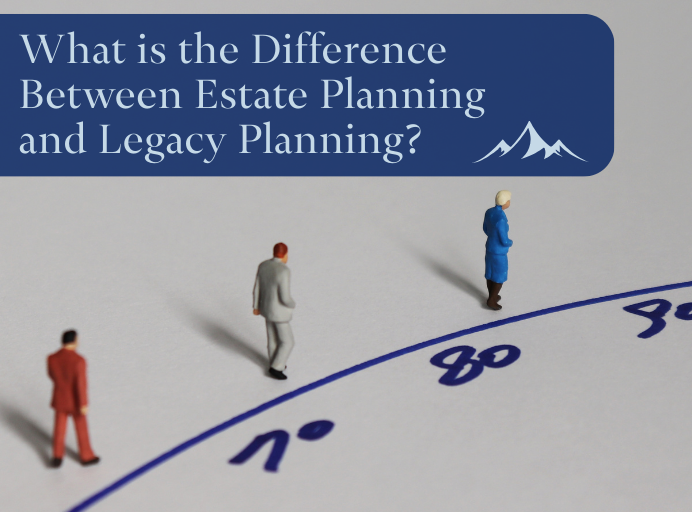
As people think about the future—whether it’s decades from now or much sooner—questions often arise about how to prepare for what comes next. Words like “estate planning” and “legacy planning” tend to surface in those conversations. While the two ideas are related, and sometimes used interchangeably, they reflect different ways of thinking about how your life, choices, and resources may shape the world you leave behind.
Understanding the distinction may offer a clearer sense of direction when you’re planning for retirement, and it can also be a helpful starting point for meaningful discussions with family or professionals.
Estate Planning: Organizing the Practical Side of the Future
Estate planning is largely about putting key decisions in writing1, which can reduce uncertainty later on and may provide clarity during moments that are often emotionally or logistically complex.
It focuses on how responsibilities, financial matters, and personal belongings may be handled in the future. This includes decisions that take effect after death, but can also involve planning for unexpected events during your lifetime.
Some areas estate planning may cover include:
- Choosing who receives specific possessions or accounts
- Naming someone to manage responsibilities after death
- Preparing for potential healthcare or financial decisions during life
- Planning ahead for taxes, debt, or final expenses
Legacy Planning: Exploring What Matters Beyond Assets
Legacy planning focuses on finances as well as on the stories, values, and intentions that shape how you want to be remembered2. It invites questions about the impact you hope to have on people, causes, or communities.
Legacy planning may involve:
- Sharing life lessons or personal history with future generations
- Supporting organizations or values that reflect your priorities
- Involving others in family traditions or decision-making roles
- Creating personal messages, such as letters or recordings, to be shared later
Unlike estate planning, which often centers around legal and financial tools, legacy planning may be more reflective. It can encourage thoughtful conversations and ongoing engagement with the people who matter most to you.
You don’t have to have everything figured out at once. The important thing is to start where you are. Whether you’re thinking about legacy planning, estate planning, or both, taking the first step may help you shape a future that reflects your values and intentions. To begin exploring your options, contact Vantage Point and schedule a conversation about what matters most to you.
Citations:
- Estate Planning Checklist: A 7-Step Guide to Getting Your Affairs in Order, NerdWallet, Accessed August 11, 2025, https://www.nerdwallet.com/article/investing/estate-planning/estate-planning
- Create a lasting impact by leaving a legacy, Britannica, Accessed August 11, 2025, https://www.britannica.com/money/leaving-a-legacy
Our firm does not provide legal advice. All individuals are encouraged to seek the guidance of a qualified attorney prior to making any decisions about their situation.
Investment advisory services are offered through Vantage Point Financial, a registered investment adviser. Registration with any regulatory body does not imply any particular level of skill. This material is provided for informational purposes only and should not be construed as investment, tax, or legal advice. Working with a financial planner does not ensure financial success or prevent loss. All investments involve risk, including the possible loss of principal. Past performance does not guarantee future results. The scenarios presented are hypothetical and are intended for illustrative purposes only. They do not reflect actual client results and are not guarantees of future outcomes. Individual results will vary. Certain financial strategies may offer tax advantages, but outcomes depend on individual circumstances and are subject to change due to tax laws and other external factors. Vantage Point Financial does not provide legal or tax advice. Consult a tax professional. Retirement outcomes depend on a variety of factors, including individual savings behavior, market performance, health events, and other considerations. Certain statements herein may reflect the firm’s current views, expectations, or beliefs, which are subject to change without notice. For additional information about our services, fees, and disclosures, please refer to our Form ADV Part 2A, available at https://vantage-point.mwdevsite.com or upon request at no cost.







